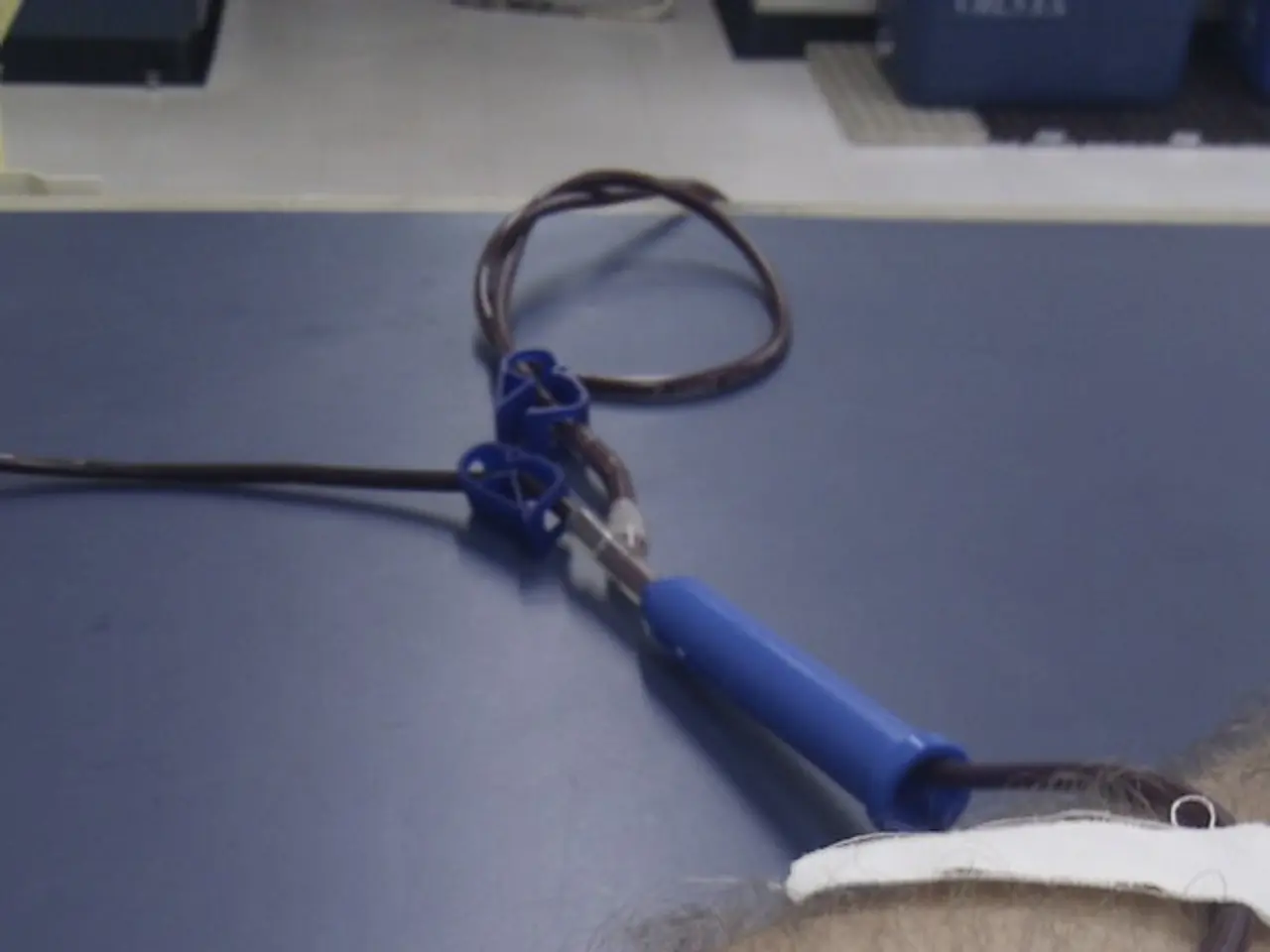Exploring Thyroid Problems: Delving into Examinations of the Thyroid Organ
The thyroid gland, a small organ situated in the neck, plays a crucial role in regulating metabolism, energy production, and various physiological processes. Thyroid disorders, a group of conditions affecting individuals of all ages and backgrounds, can disrupt the body's metabolism and have far-reaching effects on health and well-being.
In cases where thyroid nodules are identified, a fine needle aspiration (FNA) biopsy may be recommended to collect a tissue sample and examine it for signs of cancer or other abnormalities. This procedure is instrumental in diagnosing and managing thyroid disorders, as it allows for the evaluation of both the gland's function (hormones) and structure (ultrasound, biopsy) for accurate diagnosis and the selection of optimal treatment.
A thyroid gland examination is essential in diagnosing and monitoring goiter, the enlargement of the thyroid gland, often caused by iodine deficiency or underlying thyroid disorders. During the examination, a physical assessment is performed to evaluate the size, shape, and texture of the thyroid gland. Imaging studies such as ultrasound may be performed if the physical examination or blood tests raise concerns to assess the structure and detect nodules or abnormalities.
Two common thyroid disorders are hypothyroidism and hyperthyroidism. Hypothyroidism is a thyroid disorder that occurs when the thyroid gland produces insufficient amounts of thyroid hormones (T3 and T4), leading to symptoms such as fatigue, weight gain, dry skin, and depression. On the other hand, hyperthyroidism is a thyroid disorder that arises from an overproduction of thyroid hormones, resulting in symptoms like rapid heartbeat, weight loss, anxiety, and heat intolerance.
Blood tests, including thyroid function tests, are ordered to measure the levels of thyroid hormones (T3 and T4) and thyroid-stimulating hormone (TSH) in the blood. Regular check-ups and proactive care can help ensure that thyroid disorders are identified and managed effectively, promoting overall health and well-being.
Timely diagnosis and appropriate management are crucial for mitigating the effects of thyroid disorders on an individual's quality of life. If you suspect thyroid issues or experience symptoms related to thyroid dysfunction, it's essential to consult with a healthcare professional. Thyroid cancer, though relatively rare, is a concern, and early detection is crucial for successful treatment. A thorough thyroid gland examination, along with imaging studies and biopsies, plays a pivotal role in identifying and diagnosing thyroid cancer.
In conclusion, understanding the role of a thyroid gland examination in the diagnostic process is crucial for identifying and managing thyroid disorders. Regular check-ups and proactive care can help ensure that thyroid disorders are identified and managed effectively, promoting overall health and well-being. If you have any concerns about your thyroid health, consult with a healthcare professional to discuss your symptoms and potential next steps.
- Science has revealed that thyroid cancer can arise from an overproduction or underproduction of thyroid hormones, which emphasizes the importance of medical-conditions diagnostic procedures like fine needle aspiration (FNA) biopsies in the management of thyroid disorders.
- As respiratory-conditions can sometimes complicate thyroid disorders, healthcare professionals may also recommend fitness-and-exercise routines to improve lung function and overall wellness.
- Mental-health issues like depression are often associated with hypothyroidism, a thyroid disorder causing insufficient thyroid hormone production – highlighting the interconnectedness of various health-and-wellness components.
- Proper nutrition, tailored to address specific skin-conditions or cardiovascular-health concerns, can help support thyroid health recovery and minimize complications related to thyroid disorders.
- Studies on neurological-disorders have shown neural connections between the brain and thyroid gland, suggesting the possibility of thyroid involvement in certain skin-conditions, further emphasizing the need for comprehensive health care.
- Overall wellness encompasses various aspects, including eye-health, fitness-and-exercise, nutrition, and mental-health, as well as the management of conditions like thyroid disorders to maintain skin-care and cardiovascular-health, ensuring a balanced and long-lasting quality of life.




